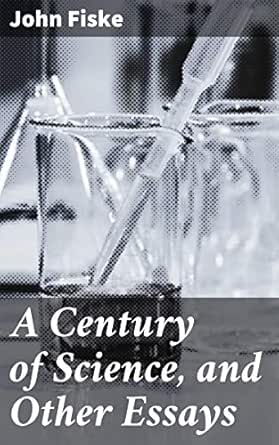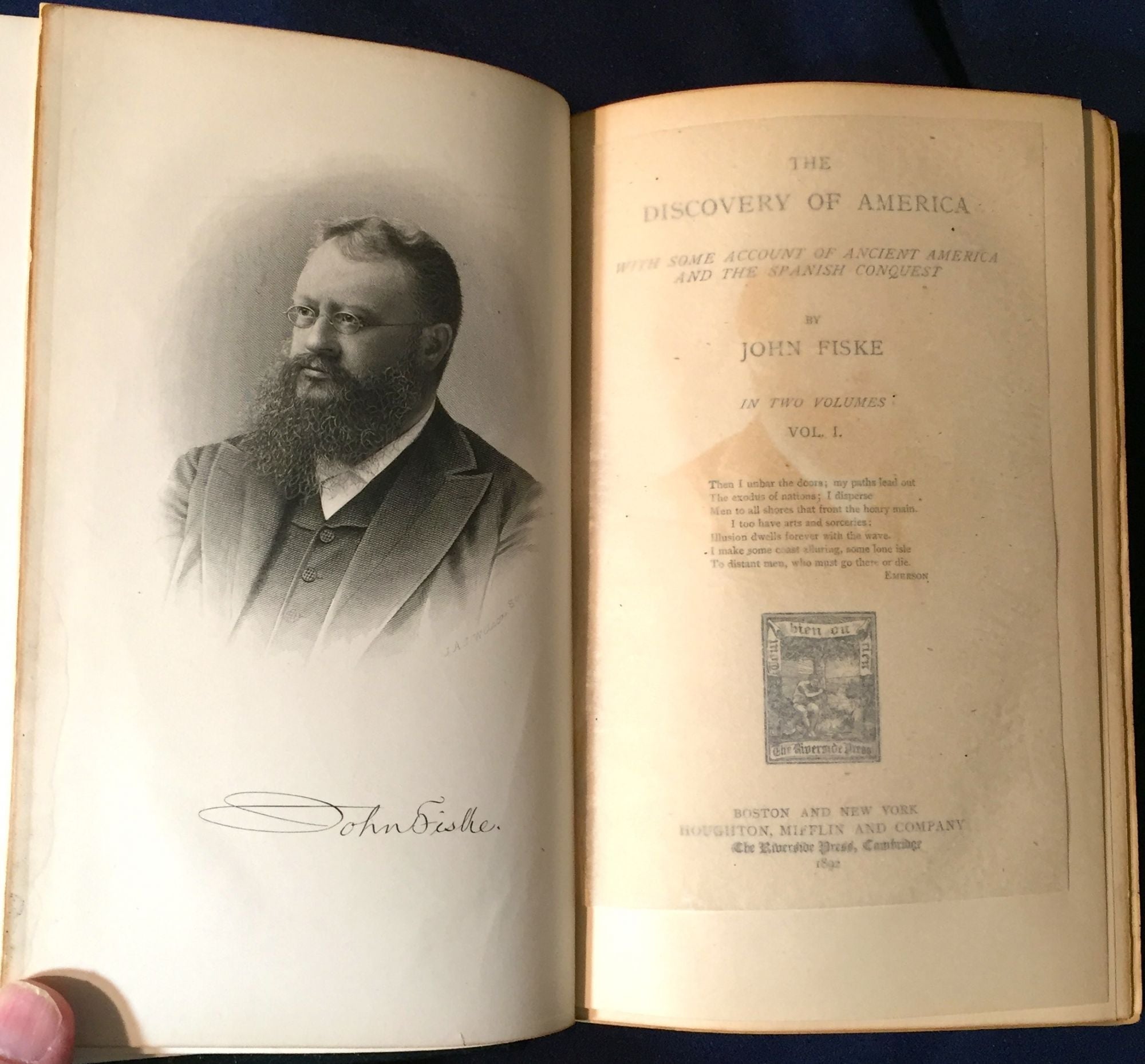Sunday, January 31, 2021
POEMS FOR CHILDREN - Verse by W · A · FRISBIE - 1901

A FIRE IN FROGTOWN
One sultry night in Frogtown
The muskrats’ house caught fire;
The muskrats, with their babies,
Rushed out in scant attire.
Then all the Frogtown firemen,
In startled haste arose,
And ran to put the fire out
With dandelion hose.

THE PORCUPINE’S DILEMMA
A porcupine once played at golf
And wore a sweater red.
“I notice all the swells dress so.
“And so will I”, he said.
But when he found his stylish clothes
Were far too warm for golf,
His sharp quills held that sweater fast
He couldn’t get it off.
A monkey, sitting on a tree
Above a shady pool,
Looked down and saw a crocodile
Within the water cool.
The crocodile looked up and said,
“Come down my friend and swim.”
Intending, when the monkey came,
To make a meal of him.
The monkey knew this was his plan
But leaped as if to dive.
The crocodile spread wide his jaws
To catch his meal alive;
But he was disappointed much
To see his sharp game fail
For, as he leaped, the monkey caught
And hung there by his tail.
One beast there is which should be shunned
By little girls and boys;
That is the cross Whine-os-ce-ros,
Which makes an awful noise.
For if they see this animal
And do not run away,
They imitate its shrill, harsh voice
And whine the livelong day.

THE PROUD WISHBONE
The wishbone was a haughty thing
And high he held his head;
The Wing twins were but “common trash,”
And Drumsticks too, he said.
“It’s just as plain as anything
“That this is so,” quoth he,
“For there are two of each of them
“But only one of Me.”
And when two children at the feast
Each for the wishbone cried
The Wishbone said “I told you so”
And oh, he swelled with pride.
They took him each one by a foot
As children often do,
Then each one gave a sudden tug
And broke him right in two.
There was a dancing camel with a desert caravan;
His driver was a busy and an un-esthetic man,
Who made the camel work all day and gave him ne’er a chance
To lay his heavy load aside and do a fancy dance.
But when they reached a city and heard street musicians play,
The camel danced a step or two while jogging on his way,
And quickly people thronged about to wonder and to stare,
While the driver passed the hat and made his fortune then and there.
Young George Augustus William Bubb
Was far too dignified
To play at games like other boys
They grated on his pride.
He did not know how kites are made,
Nor how to play at ball,
Nor how to skate, nor how to swim,
Nor anything at all.
Said Mrs. Robin breathlessly
“The frosts are nearly due,
This moving south is troublesome,
The baggage heavy, too.”
Said Mr. Rob, “Oh, that’s all right,
We’ll bill the baggage through.”

Wednesday, January 27, 2021
CARNIVAL OF BLACK AND WHITE IN COLOMBIA - TRAVEL

From 2 to 7 January in the Colombian city of Pasto, a colorful carnival "Black and White" (Carnaval Negros y Blancos) takes place. The history of the carnival began in the 17th century, when African slaves demanded a free day from the Spanish colonialists for fun and relaxation. Over time, the carnival has become a large-scale celebration symbolizing human equality and the unity of cultures. On festive days, there are a number of entertainment events, several concerts and a solemn procession of funny papier-mâché dolls. The holiday ends with a grand gastronomic fair of local dishes and products.

























Thursday, January 21, 2021
DIVORCE - by Jackie Kay
| |
Monday, January 18, 2021
LOVE - by Chris Farmer
FOR YOU ARE THE ONE - by Chris Messick
|
Friday, January 15, 2021
THE PART PLAYED BY INFANCY IN THE EVOLUTION OF MAN - by John Fiske

When Darwin's
“Origin of Species” was first published, when it gave us that wonderful
explanation of the origin of forms of life from allied forms through the
operation of natural selection, it must have been like a mental
illumination to every person who comprehended it. But after all it left a
great many questions unexplained, as was natural. It accounted for the
phenomena of organic development in general with wonderful success, but
it must have left a great many minds with the feeling: If man has been
produced in this way, if the mere operation of natural selection has
produced the human race, wherein is the human race anyway essentially
different from lower races? Is not man really dethroned, taken down from
that exceptional position in which we have been accustomed to place
him, and might it not be possible, in the course of the future, for
other beings to come upon the earth as far superior to man as man is
superior to the fossilized dragons of Jurassic antiquity?
Such questions used
to be asked, and when they were asked, although one might have a very
strong feeling that it was not so, at the same time one could not
exactly say why. One could not then find any scientific argument for
objections to that point of view. But with the further development of
the question the whole subject began gradually to wear a different
appearance; and I am going to give you a little bit of autobiography,
because I think it may be of some interest in this connection. I am
going to mention two or three of the successive stages which the whole
question took in my own mind as one thing came up after another, and how
from time to time it began to dawn upon me that I had up to that point
been looking at the problem from not exactly the right point of view.
When Darwin's
“Descent of Man” was published in 1871, it was of course a book
characterized by all his immense learning, his wonderful fairness of
spirit and fertility of suggestion. Still, one could not but feel that
it did not solve the question of the origin of man. There was one great
contrast between that book and his “Origin of Species.” In the earlier
treatise he undertook to point out a vera causa (true cause) of the
origin of species, and he did it. In his “Descent of Man” he brought
together a great many minor generalizations which facilitated the
understanding of man's origin. But he did not come at all near to
solving the central problem, nor did he anywhere show clearly why the
natural selection might not have gone on forever producing one set of
beings after another distinguishable chiefly by physical differences.
But Darwin's co-discoverer, Alfred Russel Wallace, at an early stage in
his researches, struck out a most brilliant and pregnant suggestion. In
that one respect Wallace went further than ever Darwin did. It was a
point of which, indeed, Darwin admitted the importance. It was a point
of which nobody could fail to understand the importance, that in the
course of the evolution of a very highly organized animal, if there came
a point at which it was of more advantage to that animal to have
variations in his intelligence seized upon and improved by natural
selection than to have physical changes seized upon, then natural
selection would begin working almost exclusively upon that creature's
intelligence, and he would develop in intelligence to a great extent,
while his physical organism would change but slightly. Now, that of
course applied to the case of man, who is changed physically but very
slightly from the apes, while he has traversed intellectually such a
stupendous chasm.
As soon as this
statement was made by Wallace, it seemed to me to open up an entirely
new world of speculation. There was this enormous antiquity of man,
during the greater part of which he did not know enough to make history.
We see man existing here on the earth, no one can say how long, but
surely many hundreds of thousands of years, yet only during just the
last little fringe of four or five thousand years has he arrived at the
point where he makes history. Before that, something was going on, a
great many things were going on, while his ancestors were slowly growing
up to that point of intelligence where it began to make itself felt in
the recording of events. This agrees with Wallace's suggestion of a long
period of psychical change, accompanied by slight physical change.
Well, in the spring
of 1871, when Darwin's “Descent of Man” came out, just about the same
time I happened to be reading Wallace's account of his experiences in
the Malay Archipelago, and how at one time he caught a female
orang-outang with a new-born baby, and the mother died, and Wallace
brought up the baby orang-outang by hand; and this baby orang-outang had
a kind of infancy which was a great deal longer than that of a cow or a
sheep, but it was nothing compared to human infancy in length. This
little orang-outang could not get up and march around, as mammals of
less intelligence do, when he was first born, or within three or four
days; but after three or four weeks or so he would get up, and begin
taking hold of something and pushing it around, just as children push a
chair; and he went through a period of staring at his hands, as human
babies do, and altogether was a good deal slower in getting to the point
where he could take care of himself. And while I was reading of that I
thought, Dear me! if there is any one thing in which the human race is
signally distinguished from other mammals, it is in the enormous
duration of their infancy; but it is a point that I do not recollect
ever seeing any naturalist so much as allude to.
It happened at just
that time that I was making researches in psychology about the
organization of experiences, the way in which conscious intelligent
action can pass down into quasi-automatic action, the generation of
instincts, and various allied questions; and I thought, Can it be that
the increase of intelligence in an animal, if carried beyond a certain
point, must necessarily result in prolongation of the period of infancy,
must necessarily result in the birth of the mammal at a less developed
stage, leaving something to be done, leaving a good deal to be done,
after birth? And then the argument seemed to come along very naturally,
that for every action of life, every adjustment which a creature makes
in life, whether a muscular adjustment or an intelligent adjustment,
there has got to be some registration effected in the nervous system,
some line of transit worn for nervous force to follow; there has got to
be a connection between certain nerve-centres before the thing can be
done, whether it is the acts of the viscera or the acts of the limbs, or
anything of that sort; and of course it is obvious that if the creature
has not many things to register in his nervous system, if he has a life
which is very simple, consisting of few actions that are performed with
great frequency, that animal becomes almost automatic in his whole
life; and all the nervous connections that need to be made to enable him
to carry on life get made during the fœtal period [the period before
birth] or during the egg period, and when he comes to be born, he comes
all ready to go to work. As one result of this, he does not learn from
individual experience, but one generation is like the preceding
generations, with here and there some slight modifications. But when you
get the creature that has arrived at the point where his experience has
become varied, he has got to do a good many things, and there is more
or less individuality about them; and many of them are not performed
with the same minuteness and regularity, so that there does not begin to
be that automatism within the period during which he is being developed
and his form is taking on its outlines. During prenatal life (before
birth) there is not time enough for all these nervous registrations, and
so by degrees it comes about that he is born with his nervous system
perfectly capable only of making him breathe and digest food, of making
him do the things absolutely requisite for supporting life; instead of
being born with a certain number of definite developed capacities, he
has a number of potentialities which have got to be roused according to
his own individual experience. Pursuing that line of thought, it began
after a while to seem clear to me that the infancy of the animal in a
very undeveloped condition, with the larger part of his faculties in
potentiality rather than in actuality, was a direct result of the
increase of intelligence, and I began to see that now we have two steps:
first, natural selection goes on increasing the intelligence; and
secondly, when the intelligence goes far enough, it makes a longer
infancy, a creature is born less developed, and therefore there comes
this plastic period during which he is more teachable. The capacity for
progress begins to come in, and you begin to get at one of the great
points in which man is distinguished from the lower animals, for one of
those points is undoubtedly his progressiveness; and I think that any
one will say, with very little hesitation, that if it were not for our
period of infancy we should not be progressive. If we came into the
world with our capacities all cut and dried, one generation would be
very much like another.
Then, looking around
to see what are the other points which are most important in which man
differs from the lower animals, there comes that matter of the family.
The family has adumbrations and foreshadowings among the lower animals,
but in general it may be said that while mammals lower than man are
gregarious, in man have become established those peculiar relationships
which constitute what we know as the family; and it is easy to see how
the existence of helpless infants would bring about just that state of
things. The necessity of caring for the infants would prolong the period
of maternal affection, and would tend to keep the father and mother and
children together, but it would tend especially to keep the mother and
children together. This business of the marital relations was not really
a thing that became adjusted in the primitive ages of man, but it has
become adjusted in the course of civilization. Real monogamy, real
faithfulness of the male parent, belongs to a comparatively advanced
stage; but in the earlier stages the knitting together of permanent
relations between mother and infant, and the approximation toward steady
relations on the part of the male parent, came to bring about the
family and gradually to knit those organizations which we know as clans.
Here we come to
another stage, another step forward. The instant society becomes
organized in clans, natural selection cannot let these clans be broken
up and die out, the clan becomes the chief object or care of natural
selection, because, if you destroy it you retrograde again, you lose all
you have gained; consequently, those clans in which the primeval
selfish instincts were so modified that the individual conduct would be
subordinated to some extent to the needs to the clan, those are the ones
which would prevail in the struggle for life. In this way you gradually
get an external standard to which man has to conform his conduct, and
you get the germs of altruism and morality; and in the prolonged
affectionate relation between the mother and the infant you get the
opportunity for that development of altruistic feeling which, once
started in those relations, comes into play in the more general
relations, and makes more feasible and more workable the bonds which
keep society together, and enable it to unite on wider and wider terms.
So it seems that
from a very small beginning we are reaching a very considerable result. I
had got these facts pretty clearly worked out, and carried them around
with me some years, before a fresh conclusion came over me one day with a
feeling of surprise. In the old days before the Copernican astronomy
was promulgated, man regarded himself as the centre of the universe. He
used to entertain theological systems which conformed to his limited
knowledge of nature. The universe seemed to be made for his uses, the
earth seemed to have been fitted up for his dwelling-place, he occupied
the centre of creation, the sun was made to give him light, etc. When
Copernicus overthrew that view, the effect upon theology was certainly
tremendous. I do not believe that justice has ever been done to the
shock that it gave to man when he was made to realize that he occupied a
kind of miserable little clod of dirt in the universe, and that there
were so many other worlds greater than this. It was one of the first
great shocks involved in the change from ancient to modern scientific
views, and I do not doubt it was responsible for a great deal of the
pessimistic philosophizing that came in the seventeenth and eighteenth
centuries.
Now, it flashed upon
me a dozen years or so ago after thinking about this manner in which
man originated that man occupies certainly just as exceptional a
position as before, if he is the terminal in a long series of
evolutionary events. If at the end of the long history of evolution
comes man, if this whole secular process has been going on to produce
this supreme object, it does not much matter what kind of a cosmical
body he lives on. He is put back into the old position of theological
importance, and in a much more intelligent way than in the old days when
he was supposed to occupy the centre of the universe. We are enabled to
say that while there is no doubt of the evolutionary process going on
through countless ages which we know nothing about, yet in the one case
where it is brought home to us we spell out an intelligible story, and
we do find things working along up to man as a terminal fact in the
whole process. This is indeed a consistent conclusion from Wallace's
suggestion that natural selection, in working toward the genesis of man,
began to follow a new path and make psychical changes instead of
physical changes. Obviously, here you are started upon a new chapter in
the history of the universe. It is no longer going to be necessary to
shape new limbs, and to thicken the skin and make new growths of hair,
when man has learned how to build a fire, when he can take some other
animal's hide and make it into clothes. You have got to a new state of
things.
After I had put
together all these additional circumstances with regard to the
origination of human society and the development of altruism, I began to
see a little further into the matter. It then began to appear that not
only is man the terminal factor in a long process of evolution, but in
the origination of man there began the development of the higher
psychical attributes, and those attributes are coming to play a greater
and greater part in the development of the human race. Just take this
mere matter of “altruism,” as we call it. It is not a pretty word, but
must serve for want of a better. In the development of altruism from the
low point, where there was scarcely enough to hold the clan together,
up to the point reached at the present day, there has been a notable
progress, but there is still room for an enormous amount of improvement.
The progress has been all in the direction of bringing out what we call
the higher spiritual attributes. The feeling was now more strongly
impressed upon me than ever, that all these things tended to set the
whole doctrine of evolution into harmony with religion; that if the past
through which man had originated was such as has been described, then
religion was a fit and worthy occupation for man, and some of the
assumptions which underlie every system of religion must be true. For
example, with regard to the assumption that what we see of the present
life is not the whole thing; that there is a spiritual side of the
question beside the material side; that, in short, there is for man a
life eternal. When I wrote the “Destiny of Man,” all that I ventured to
say was, that it did not seem quite compatible with ordinary common
sense to suppose that so much pains would have been taken to produce a
merely ephemeral result. But since then another argument has occurred to
me: that just at the time when the human race was beginning to come
upon the scene, when the germs of morality were coming in with the
family, when society was taking its first start, there came into the
human mind, how one can hardly say, but there did come, the beginnings
of a groping after something that lies outside and beyond the world of
sense. That groping after a spiritual world has been going on here for
much more than a hundred thousand years, and it has played an enormous
part in the history of mankind, in the whole development of human
society. Nobody can imagine what mankind would have been without it up
to the present time. Either all religion has been a reaching out for a
phantom that does not exist, or a reaching out after something that does
exist, but of which man, with his limited intelligence, has only been
able to gain a crude idea. And the latter seems a far more probable
conclusion, because, if it is not so, it constitutes a unique exception
to all the operations of evolution we know about. As a general thing in
the whole history of evolution, when you see any internal adjustment
reaching out toward something, it is in order to adapt itself to
something that really exists; and if the religious cravings of man
constitute an exception, they are the one thing in the whole process of
evolution that is exceptional and different from all the rest. And this
is surely an argument of stupendous and resistless weight.
I take this
autobiographical way of referring to these things, in the order in which
they came before my mind, for the sake of illustration. The net result
of the whole is to put evolution in harmony with religious thought, not
necessarily in harmony with particular religious dogmas or theories, but
in harmony with the great religious drift, so that the antagonism which
used to appear to exist between religion and science is likely to
disappear. So I think it will before a great while. If you take the case
of some evolutionist like Professor Haeckel, who is perfectly sure that
materialism accounts for everything (he has got it all cut and dried
and settled; he knows all about it, so that there is really no need of
discussing the subject!); if you ask the question whether it was his
scientific study of evolution that really led him to such a dogmatic
conclusion, or whether it was that he started from some purely arbitrary
assumption, like the French materialists of the eighteenth century, I
have no doubt that the latter would be the true explanation. There are a
good many people who start on their theories of evolution with these
ultimate questions all settled to begin with. It was the most natural
thing in the world that after the first assaults of science upon old
beliefs, after a certain number of Bible stories and a certain number of
church doctrines had been discredited, there should be a school of men
who in sheer weariness should settle down to scientific researches, and
say, “We content ourselves with what we can prove by the methods of
physical science, and we will throw everything else overboard.” That was
very much the state of mind of the famous French atheists of the last
century. But only think how chaotic nature was to their minds compared
to what she is to our minds today. Just think how we have in the present
century arrived where we can see the bearings of one set of facts in
nature as collated with another set of facts, and contrast it with the
view which even the greatest of those scientific French materialists
could take. Consider how fragmentary and how lacking in arrangement was
the universe they saw compared with the universe we see today, and it is
not strange that to them it could be an atheistic world. That hostility
between science and religion continued as long as religion was linked
hand in hand with the ancient doctrine of special creation. But now that
the religious world has unmoored itself, now that it is beginning to
see the truth and beauty of natural science and to look with friendship
upon conceptions of evolution, I suspect that this temporary antagonism,
which we have fallen into a careless way of regarding as an everlasting
antagonism, will come to an end perhaps quicker than we realize.
There is one point
that is of great interest in this connection, although I can only hint
at it. Among the things that happened in that dim past when man was
coming into existence was the increase of his powers of manipulation;
and that was a factor of immense importance. Anaxagoras, it is said,
wrote a treatise in which he maintained that the human race would never
have become human if it had not been for the hand. I do not know that
there was so very much exaggeration about that. It was certainly of
great significance that the particular race of mammals whose
intelligence increased far enough to make it worth while for natural
selection to work upon intelligence alone was the race which had
developed hands and could manipulate things. It was a wonderful era in
the history of creation when that creature could take a club and use it
for a hammer, or could pry up a stone with a stake, thus adding one more
lever to the levers that made up his arm. From that day to this, the
career of man has been that of a person who has operated upon his
environment in a different way from any animal before him. An era of
similar importance came probably somewhat later, when man learned how to
build a fire and cook his food. Here was another means of acting upon
the environment. Here was the beginning of the working of endless
physical and chemical changes through the application of heat, just as
the first use of the club or the crowbar was the beginning of an
enormous development in the mechanical arts.
Now, at the same
time, to go back once more into that dim past, when ethics and religion,
manual art and scientific thought, found expression in the crudest form
of myths, the æsthetic sense was germinating likewise. Away back in the
glacial period you find pictures drawn and scratched upon the
reindeer's antler, portraitures of mammoths and primitive pictures of
the chase; you see the trinkets, the personal decorations, proving
beyond question that the æsthetic sense was there. There has been an
immense aesthetic development since then. And I believe that in the
future it is going to mean far more to us than we have yet begun to
realize. I refer to the kind of training that comes to mankind through
direct operation upon his environment, the incarnation of his thought,
the putting of his ideas into new material relations. This is going to
exert powerful effects of a civilizing kind. There is something strongly
educational and disciplinary in the mere dealing with matter, whether
it be in the manual training-school, whether it be in carpentry, in
overcoming the inherent and total depravity of inanimate things, shaping
them to your will, and also in learning to subject yourself to their
will (for sometimes you must do that in order to achieve your conquests;
in other words, you must humour their habits and proclivities). In all
this there is a priceless discipline, moral as well as mental, let alone
the fact that, in whatever kind of artistic work a man does, he is
doing that which in the very working has in it an element of something
outside of egoism; even if he is doing it for motives not very
altruistic, he is working toward a result the end of which is the
gratification or the benefit of other persons than himself; he is
working toward some result which in a measure depends upon their
approval, and to that extent tends to bring him into closer relations to
his fellow man.
In the future, to an
even greater extent than in the recent past, crude labour will be
replaced by mechanical contrivances. The kind of labour which can
command its price is the kind which has trained intelligence behind it.
One of the great needs of our time is the multiplication of skilled and
special labour. The demand for the products of intelligence is far
greater than that for mere crude products of labour, and it will be more
and more so. For there comes a time when the latter products have
satisfied the limit to which a man can consume food and drink and
shelter, those things which merely keep the animal alive. But to those
things which minister to the requirements of the spiritual side of a man
there is almost no limit. The demand one can conceive is well-nigh
infinite. One of the philosophical things that have been said, in
discriminating man from the lower animals, is that he is the one
creature who is never satisfied. It is well for him that he is so, that
there is always something more for which he craves. To my mind this fact
most strongly hints that man is infinitely more than a mere animate
machine.
John
Fiske attained distinction in three distinct fields of letters: as a
historian, as a scientific interpreter of religion, as an expositor of
the philosophy of evolution. In this last department of his work his
original contribution was the theory here set forth, taken from a
chapter in “A Century of Science and Other Essays,”.
John Fiske (1842 – 1901) was an American philosopher and historian.
John
Fiske was born Edmund Fiske Green at Hartford, Connecticut, March 30,
1842. He was the only child of Edmund Brewster Green, of Smyrna,
Delaware, and Mary Fiske Bound, of Middletown, Connecticut. His father
was editor of newspapers in Hartford, New York City, and Panama, where
he died in 1852, and his widow married Edwin W. Stoughton, of New York,
in 1855. On the second marriage of his mother, Edmund Fiske Green
assumed the name of his maternal great-grandfather, John Fiske.
As
a child, Fiske exhibited remarkable precocity. He lived at Middletown
during childhood, until he entered Harvard. He graduated from Harvard
College in 1863 and from Harvard Law School in 1865. He had already
admitted to the Suffolk bar in 1864, but never practised law. His career
as author began in 1861, with an article on "Mr. Buckle's Fallacies"
published in the National Quarterly Review. After that, he was a
frequent contributor to American and British periodicals.
From
1869 to 1871, he was university lecturer on philosophy at Harvard, in
1870 instructor in history there, and assistant librarian 1872-1879. On
resigning the latter position in 1879, he was elected a member of the
board of overseers, and at the expiration of the six-years' term was
re-elected in 1885. Beginning in 1881, he lectured annually on American
history at Washington University, St. Louis, Missouri, and beginning in
1884 held a professorship of American history at that institution, but
continued to make his home in Cambridge, Massachusetts. He lectured on
American history at University College London in 1879, and at the Royal
Institution of Great Britain in 1880. He gave many hundreds of lectures,
chiefly upon American history, in the principal cities of the United
States and Great Britain. Fiske was elected a member of the American
Antiquarian Society in 1884.
The
largest part of his life was devoted to the study of history, but at an
early age inquiries into the nature of human progress led him to a
careful study of the doctrine of evolution, and it was through the
popularization of Charles Darwin's work that he first became known to
the public. He applied himself to the philosophical interpretation of
Darwin's work and produced many books and essays on this subject. His
philosophy was influenced by Herbert Spencer's views on evolution. In a
letter from Charles Darwin to John Fiske, dated from 1874, the
naturalist remarks: "I never in my life read so lucid an expositor (and
therefore thinker) as you are."
Nineteenth-century
enthusiasm for brain size as a simple measure of human performance,
championed by scientists including Darwin's cousin Francis Galton and
the French neurologist Paul Broca, led Fiske to believe in the racial
superiority of the "Anglo-Saxon race". Fiske's beliefs on race did not
preclude his commitment to abolitionist causes. Indeed, so anti-slavery
was he that twenty-three years after the cessation of the American Civil
War, he declared the North's victory complete "despite the feeble
wails" of "unteachable bigots." In his book "The Destiny of Man" (1884),
he devotes a whole chapter to the "End of the working of natural
selection upon man", describing it as "a fact of unparalleled grandeur."
In his view, "the action of natural selection upon Man has [...] been
essentially diminished through the operation of social conditions."
In
books such as Outlines of Cosmic Philosophy, Fiske aimed to show that
"in reality there has never been any conflict between religion and
science, nor is any reconciliation called for where harmony has always
existed." On page 364, he demonstrates his sensitivity to Christianity
as a religion:
"We arrive at a deeper reason than has hitherto been disclosed for the
difference between our position with reference to Christianity, and that
which has been assumed by Radicalism and by Positivism. It is not
merely that we refuse to attack Christianity because we recognize its
necessary adaptation to a certain stage of culture, not yet passed by
the average minds of the community; it is that we still regard
Christianity as, in the deepest sense, our own religion."
Fiske
was a popular lecturer on these topics in his early career. Later he
turned to historical writings, publishing books such as The Discovery of
America (1892). In addition, he edited, with James Grant Wilson,
Appletons' Cyclopædia of American Biography (1887). He died, worn out by
overwork, at Gloucester, Massachusetts, July 4, 1901.
source for biography:
Thursday, January 14, 2021
Subscribe to:
Posts (Atom)

